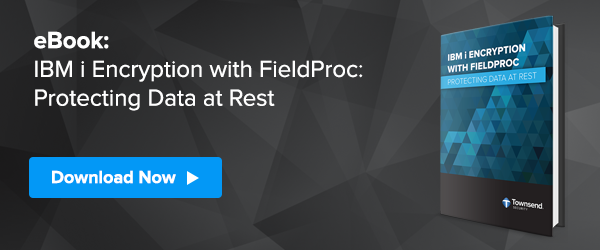 OpenSSL is one of the most widely used cryptographic applications and libraries. A new group of security vulnerabilities have just been identified for OpenSSL and they need attention right away. IBM i (AS/400, iSeries) customers often feel isolated and protected from the security issues with OpenSSL, but this attitude can lead to trouble. IBM i customers need to monitor for vulnerabilities in OpenSSL and patch their IBM and third-party applications.
OpenSSL is one of the most widely used cryptographic applications and libraries. A new group of security vulnerabilities have just been identified for OpenSSL and they need attention right away. IBM i (AS/400, iSeries) customers often feel isolated and protected from the security issues with OpenSSL, but this attitude can lead to trouble. IBM i customers need to monitor for vulnerabilities in OpenSSL and patch their IBM and third-party applications.
IBM uses the OpenSSL application in the Hardware Management Console, or HMC. The HMC is a highly privileged application that can manage many instances of IBM i logical partitions in a customer environment. You should carefully monitor security patches from IBM and apply them to your HMC. You can find IBM’s security alerts and notifications here.
On the IBM i platform itself you should be aware that the PASE environment includes the OpenSSL application. The PASE environment is an AIX emulation environment that is usually present on IBM i customer systems. Since PASE is an IBM licensed program you should apply Program Temporary Fixes (PTFs) to resolve issues with OpenSSL in PASE.
The IBM i no-charge OpenSSH licensed program also contains the OpenSSH application. However, the OpenSSH application does not use OpenSSL for session security. The primary use of OpenSSL in the OpenSSH application is for cryptographic functions. While this reduces the security threat, it does not eliminate it. You should update OpenSSH when they are PTF patches available.
The OpenSSL application is also found in the Linux-like environment of the QSHELL application in later versions of the IBM i operating system. If you use the Start QShell (STRQSH) command you can use the “type openssl” command to determine where it is located. You can view the version of OpenSSL with this command: “openssl version”. As in the above examples, be sure you apply PTFs when there are security notices for OpenSSL.
Lastly there are a number of third-party applications that embed the OpenSSL application. If these third-party applications are not using the IBM-provided OpenSSL libraries, you will need to contact those third party software providers to receive an update. Be sure you carefully review any third party application, open source application or free tool for the presence of OpenSSL. Any application that performs FTP data transfers, implements an inbound or outbound web service, or communicates with an encryption key management server should be reviewed (see below for a statement about IBM i solutions from Townsend Security).
Here at Townsend Security we have several IBM i security applications that perform secure encrypted TLS connections. None of these applications use the OpenSSL application. Instead we use the native IBM i GSKit library for TLS session security which is configured using the IBM no-charge licensed Digital Certificate Manager (DCM) product. Our Alliance FTP Manager, Alliance AES/400 FieldProc encryption, Alliance Token Manager, Alliance Two Factor Authentication, and Alliance XML/400 solutions are not subject to the OpenSSL security vulnerabilities. Note that our Alliance FTP Manager solution uses the IBM OpenSSH application, so as mentioned above be sure to apply those OpenSSH security updates from IBM if you are using OpenSSH for transfers.
In addition to signing up for IBM i security alerts at the above web site, you can subscribe to US-CERT notifications here.
Hat tip to Alex Woodie for his article on IBM i OpenSSL vulnerabilities. You can find it here.
Patrick

